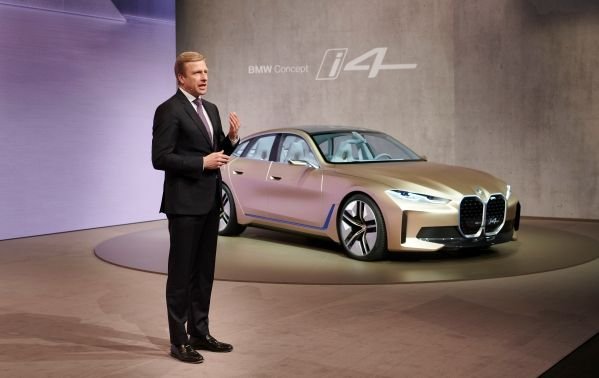
“We took decisive steps in the relevant strategic fields at the right time and are now intent on leveraging our competitive advantage to set ourselves apart from the industry trend,” the Chairman of the Board of Management of BMW AG, Oliver Zipse pointed out in Munich on March.
The BMW Group set about achieving the new CO2 targets at an early stage, an important aspect of which was the decision to systematically electrify the model range. With its Performance > NEXT programme launched in 2017, further moves were made to achieve greater efficiency and a stronger operating performance. Moreover, over the past eight years, some 46,000 employees have received training in the field of electric mobility. In view of the growing importance of software know-how, the BMW Group founded the Critical Techworks IT joint venture in 2018 in order to secure the relevant expertise and skills. The BMW Group itself is one of the largest IT employers in Germany with 5,300 employees having been trained in the field of data analytics. Access to the raw materials needed to produce electric mobility has also been strategically secured. Since the beginning of the current year, the BMW Group has been procuring the required cobalt and lithium directly and passing those resources on to the suppliers involved in manufacturing battery cells.
The BMW Group is already today a leading manufacturer and supplier of electrified vehicles and is currently in the process of expanding its range significantly. By the end of 2021, the company intends to have more than one million vehicles with all-electric or plug-in hybrid drivetrains on the roads. At that stage, the BMW Group will offer five all-electric series production vehicles. Alongside the BMW i3, demand for which increased for the sixth year in succession, production of the all-electric MINI Cooper SE* was commenced at the Oxford plant (UK) towards the end of 2019. The BMW iX3 will go into production this year at the plant in Shenyang, China, followed in 2021 by the BMW iNEXT in Dingolfing, Germany, and the BMW i4 at the Munich plant – all of which will be equipped with fifth-generation electric drivetrain technology.
Next generation of BMW 7 Series to include an all-electric version
The next generation of the BMW 7 Series will mark a new milestone. The BMW brand’s flagship vehicle also offers customers the “Power of Choice” and is set be available with four different types of drivetrain: as a highly efficient diesel- or petrol-driven car, as an electrified plug-in hybrid and, for the first time, as an all-electric BEV model, which will also be equipped with a fifth-generation electric drivetrain. Offering such a comprehensive range is a clear expression of the BMW Group’s aspiration to enable every customer to choose the technology best suited to realise sustainable mobility.
By 2023, the BMW Group will already have 25 electrified models on the roads – more than half of them all-electric. The key to achieving this objective is having intelligent vehicle architectures that, with the aid of a highly flexible production system, enable a model to be powered fully electrically, as a plug-in hybrid or with a combustion engine. With these prerequisites in place, the company is in an ideal position to meet demand in each relevant market segment and offer its customers a genuine power of choice between the various drive types. By 2021, demand for electrified vehicles is predicted to double compared to 2019. The BMW Group then expects to see a steep growth curve up to 2025, with sales of electrified vehicles growing on average by more than 30 percent p.a.
Click to read more.






